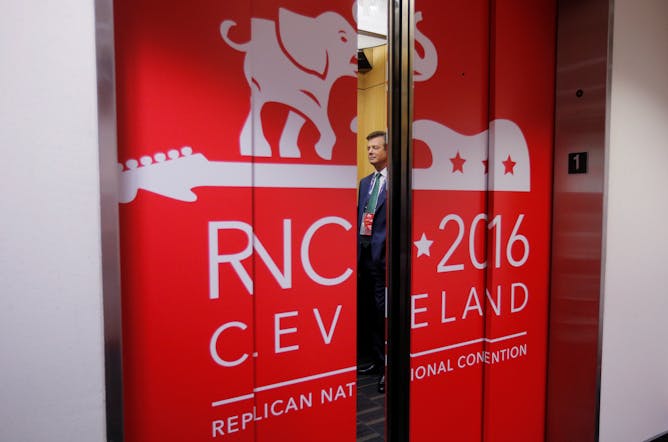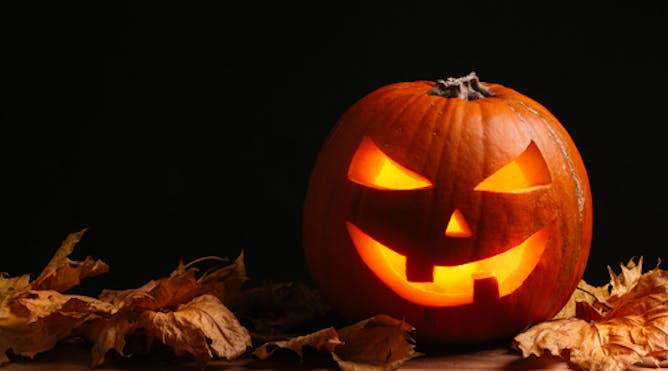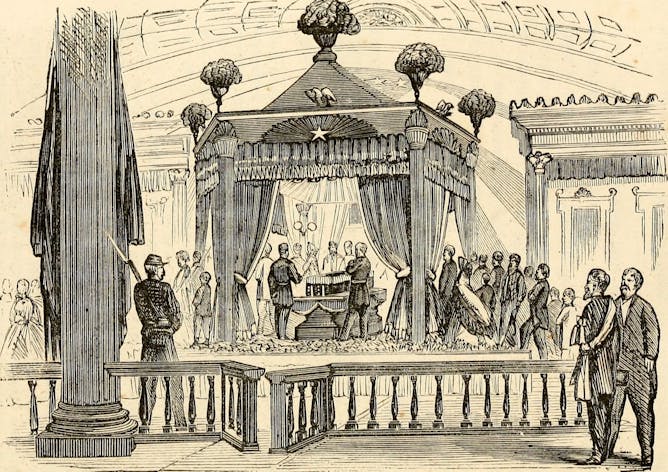|
Special Counsel Robert Mueller yesterday announced the first charges in his investigation of Russian interference in the 2016 election. Political scientist Rachel Caufield of Drake University walks us through the 12 charges faced by Trump’s onetime campaign manager Paul Manafort and his associate Rick Gates – and why a guilty plea by former campaign advisor George Papadopoulos could be what really gave the GOP an early fright on Monday.
Boo! It’s Halloween, a day to dress up, eat candy and to scare and be scared. While we may say that we do not like feeling fearful, the full-throttled observance of a day devoted to fear proves otherwise, write Arash Javanbakht and Linda Saab of Wayne State University. Many of us do enjoy being scared, but this begs a question: why do some enjoy fright and others do not? Many of our responses to fear depend on context, the authors write, in one of a collection of articles on Halloween.
As part of our series on death and dying, Elon University’s Brian Walsh explains how the Civil War and President Abraham Lincoln transformed the way we memorialize and bury our dead, turning what was a simple and private affair into the modern American funeral industry.
|

Charges against Paul Manafort predate his time as campaign manager to Donald Trump.
Reuters/Brian Snyder
Rachel Caufield, Drake University
Former Trump associates face charges including conspiracy to launder money, failure to register as a foreign agent and lying to the FBI. A law professor explains what it means and what happens next.
|

Scary pumpkins are the least of what frightens us at Halloween, a day devoted to being frightened.
asife/Shutterstock.com
Arash Javanbakht, Wayne State University; Linda Saab, Wayne State University
We may pretend that we do not like fear, but Halloween proves otherwise. Many of us enjoy being scared. But why?
|

An illustrated depiction of a scene of Lincoln lying in state.
Internet Archive Book Images
Brian Walsh, Elon University
Dying in America 200 years ago was a simply family affair, devoid of pomp. The US Civil War and Abraham Lincoln's embrace of embalming changed everything.
|
|
|
|
|
|
|
Halloween
|
-
Xavier Aldana Reyes, Manchester Metropolitan University
A guide to some lesser known treats to read and watch over Halloween.
-
Dilip Soman, University of Toronto
The way children make choices about candy on Halloween tells us a lot about human psychology.
-
Melissa J. Gismondi, University of Virginia
Robert Eggers’ indie film The Witch brilliantly chronicles Puritan life in the 1630s. Horror soon ensues as children disappear into the woods and one girl, Thomasina, is accused of witchcraft.
-
Leo Braudy, University of Southern California – Dornsife College of Letters, Arts and Sciences
All the popular monsters you'll see out trick-or-treating, from Frankenstein to Dracula, were born out of fear and anxiety about change and technology.
-
Sam George, University of Hertfordshire
How the vampire transitioned from folkloric peasant to Byronic Lord.
-
Neil Dagnall, Manchester Metropolitan University; Ken Drinkwater, Manchester Metropolitan University
The truth is out there...or is it?
|
|